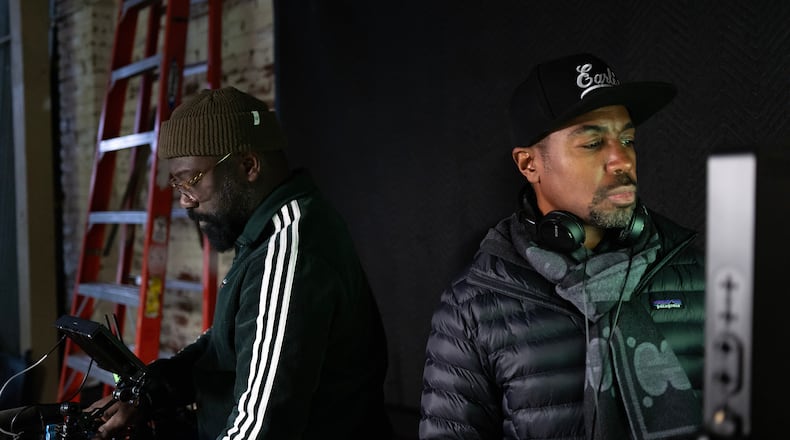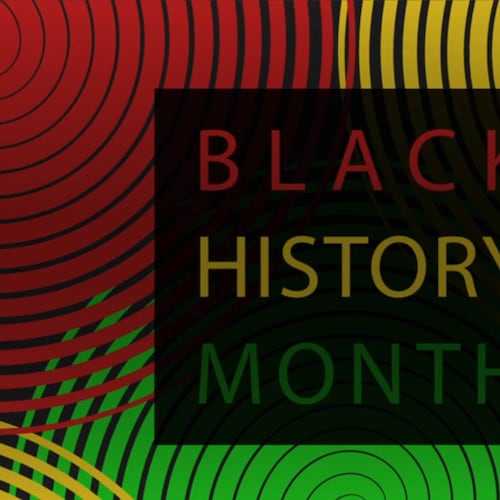From microblogging about being Black to sharing views on social, political and cultural topics, there’s no place on Earth like Black Twitter. And a new Hulu docuseries premiering May 9 digs into the digital details.
“Black Twitter: A People’s History” is a three-part documentary tracing how Black users of the social media platform have influenced culture through online community. The program looks closely at notable 140-character captions, hashtags, pictures, video reels and trending topics, with context provided by witty voiceovers delivered by scholars, comedians, cultural critics, former Twitter executives and viral sensations.
Credit: Onyx Collective
Credit: Onyx Collective
Adapted from writer Jason Parham’s oral history of Black Twitter, published July 2021 at Wired, the series is directed by Prentice Penny for Disney Entertainment’s Onyx Collective content brand. A former showrunner for Issa Rae’s HBO comedy series “Insecure,” Penny started thinking about creating “Black Twitter: A People’s History” for the screen when “Insecure” was wrapping its fifth and final season in 2021. He says it’s a coming-of-age story about how the app now known as X became a space that amplifies Black voices.
“I didn’t want to do another show that anyone could compare [’Insecure’] to,” Penny said. “Making it allowed me to be scared again.”
The show, which Penny said took three years to make, features him interviewing subjects and arranging influencers to meet in familiar Black spaces, such as a cookout, a bar, a dinner table, and a living room. In each space they have casual conversations about how their popularity on Twitter changed their lives.
Credit: Disney
Credit: Disney
It spotlights people like Ashley Weatherspoon, the creator behind the popular 2009 hashtag #UKnowUrBlackWhen, along with CaShawn Thompson, who coined #BlackGirlMagic in 2013, and April Reign, who came up with #OscarsSoWhite in 2015.
The documentary also mentions how Black Twitter helped former President Barack Obama win two terms, and how Black viewer engagement during shows like “Scandal” and “Game of Thrones” turned them into must-see-TV.
“Black Twitter: A People’s History” also digs into the origins of popular memes like basketball player Michael Jordan crying, and reality TV star Tiffany Pollard seated on a bed wearing sunglasses and a blank stare. Another scene features Twitter influencers naming mock recipes to poke fun at Paula Deen, who went viral in 2013 after making racial slurs.
“This is really about how Black people used the platform to step into their own power and ability that we had the whole time,” Penny said.
“Black Twitter: A People’s History” details how Black users transitioned from using the platform for fun and humor, to Twitter becoming a forum for addressing racial and social injustice. The show captures the despair felt when Donald Trump was elected in 2016 and Tesla CEO Elon Musk purchased the tech company and changed the name to X in 2022.
Credit: Onyx Collective
Credit: Onyx Collective
Penny said hashtags like #BlackLivesMatter were transformational for allowing Black social media participants to post graphic videos and information in real time, often ahead of or not reported by mainstream media outlets.
“The real world was affecting us on this platform in a much different way,” Penny said. “So much of our history isn’t written down, but Black Twitter is one of the few spaces where our stories are represented online.”
“Black Twitter: A People’s History” is Penny’s first project under his deal with Onyx Collective, the Disney and Hulu streaming company that highlights content from Black creators like Ryan Coogler, Natasha Rothwell and Kerry Washington.
Having founded his own production company, A Penny For Your Thoughts Entertainment, Penny says he appreciates being able to work directly with a Black studio head and a majority-Black staff, suggesting that his ideas are now less difficult to sell and create.
“I don’t have to have conversations about why my work is important,” Penny said. “It’s more about if it’s an interesting story or not.”
Penny’s deal with the Disney-Entertainment-backed Onyx Collective is also a full circle moment.
In the late 1990s, the Los Angeles native got his first professional writing job as an “imagineer,” someone who creates stories behind the attractions, with Walt Disney theme parks. For two years, he traveled the world as part of a team working to build a theme park in Washington, D.C., which was never constructed.
“Disney was so big on storytelling,” said Penny, a graduate of University of Southern California’s School of Cinematic Arts. “It taught me how to communicate that to the audience as quickly as possible.”
In 2004, Penny landed his first television job on the ensemble sitcom “Girlfriends,” which centered a group of Black women from different backgrounds and experiences. Penny would go on to write episodes of “Brooklyn Nine-Nine,” “Scrubs,” and “Happy Endings.” He would later direct the Netflix original film “Uncorked,” and co-created the HBO Max talk show “Pause with Sam Jay.”
Penny said he started regularly using Twitter in the late 2000s to post about being a fan of the Los Angeles Lakers. Social networking with other pro basketball fans led him to Black Twitter in 2010.
“I started to recognize this was a fun place to be,” he said.
The writers on “Insecure” were also taking notice of fan engagement, live tweets and their own personal experiences, using social media whenever they went into the writers’ room. Penny said each episode of the Emmy-nominated, Peabody-Award-winning comedy started regularly embedding posts from the characters to make the stories relevant.
“With any art you want to reflect real life and be authentic, so it had to go into the show,” Penny said.
Some early feedback on “Black Twitter: A People’s History” has been positive on actual Black Twitter.
Other critics on social media wonder if Penny’s “Black Twitter” documentary was made prematurely. It may be a fair question, considering that it doesn’t include recent trending Black Twitter topics such as comedian Katt Williams’ viral interview on retired football player Shannon Sharpe’s podcast, “Club Shay Shay,” or the epic Drake and Kendrick Lamar rap battle which reached its zenith last weekend.
Keeping it all in perspective, Penny says he welcomes all feedback about the program, good or bad. And in true Black Twitter fashion, he says he’s willing to engage the social media platform’s users in the same manner they address him.
“I got comments, memes, and GIFs that I can post, too,” Penny said. “I’m still in the pit with everyone and can still get these jokes off, too. I’m not above the smoke.”
About the Author
Keep Reading
The Latest
Featured







